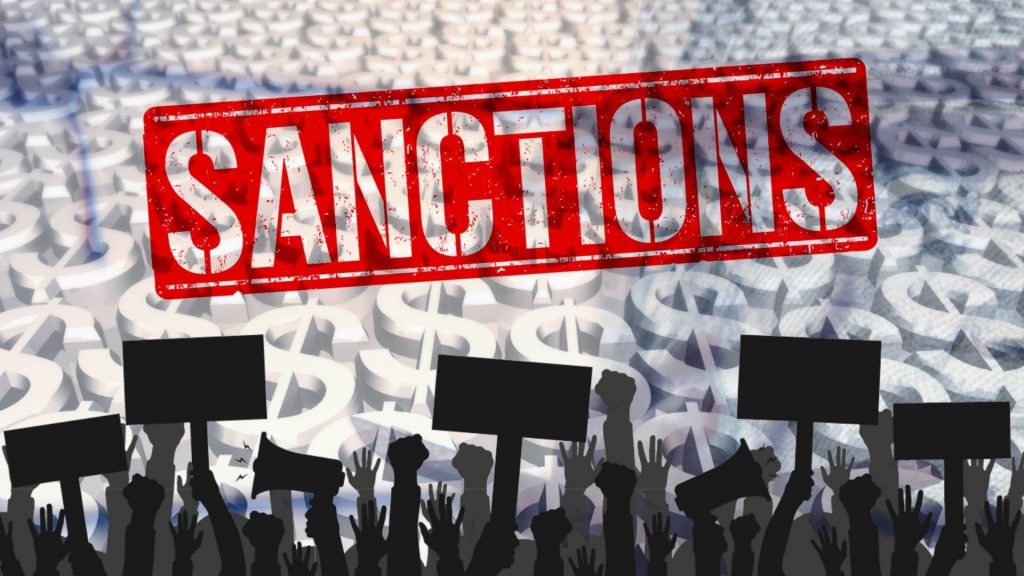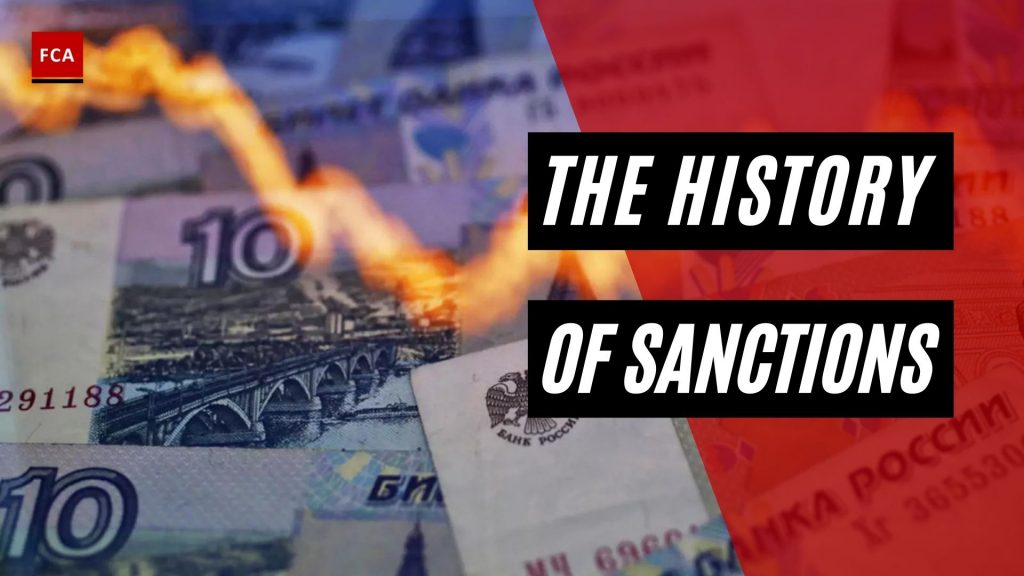What is the history of sanctions? To better understand the sanctions environment that shaping today’s world, it is important to know its origin. Or – as the infamous Martin Luther King Junior has said – “We are not makers of history. We are made by history.”

The History Of Sanctions
The methods used to enforce sanctions have evolved significantly over the past couple of decades, but the nature of sanctions has remained fundamentally the same. One of the first recorded instances of sanctions dates back to the fifth century before Christ. With the Megarian Decree in 432 BC, the Athenians levied economic sanctions, banning citizens of Megara from accessing markets in the Athenian empire. There were a few reports that Megarian citizens suffered starvation, and some believe these sanctions led to the outbreak of the Second Peloponnesian War.
For most of history, sanctions involved governments choosing tto block or embargo trade intended for another nation physically. Sanctions began to evolve to their current state near the end of the 19th century. Within Europe, peace societies began to discuss the evils of war and pacifist alternatives. Sanctions were considered an alternative to war.
19th Century Economic Sanctions
During the 19th century, economic sanctions consisted of a type of blockade involving the deployment of military troops by a country or coalition to block ports of other countries they were not fighting. The majority of naval blockades were used during the war. However, pacific blockades, or those used between nations on peaceful terms, were also used to coerce nations to pay debts or settle other conflicts.
Following World War I, or the Great War, calls for pacifism again gained traction. US President Woodrow Wilson said of sanctions, “Apply this economic, peaceful, silent, deadly remedy, and there will be no need for force.” Others have said the human and financial costs of military force for coercion have become prohibitive. Although the United States never joined, Wilson aided in the establishment of the League of Nations, a predecessor of the United Nations.
The power to deploy sanctions was included in the League’s Covenant. The least successful sanctions action was taken in 1935 when the League of Nations joined with the United Kingdom against Italy after it invaded Ethiopia. Sanctions failed because other European countries did not follow the League’s restrictions.
However, the ideas behind the League of Nations resemble the beginning of multilateral sanctions or multiple countries working together to impose sanctions on another country. Unilateral sanctions, on the contrary, are imposed by a single country against a target.
Subsequently, after the conclusion of World War II, the United Nations was formed in 1945, and sanctions were formally recognized within the charter as a foreign policy tool.
The Cold War
During the Cold War, governments imposed sanctions more often than in prior decades. The United States, as one of the two superpowers, imposed sanctions significantly more than any other country. It was not until the 1990s, after the Cold War ended, that unilateral sanctions began to be replaced by multilateral, intergovernmental coalitions. While the US continued leading with the most sanctions, Western Europe, especially the United Kingdom, began playing a more active role.
The UN imposed the most high-profile sanctions between 1990 and 2003 against Iraq, leading up to and following the first Gulf War. Since 1990, sanctions have often been targeted at political leaders, drug lords, and terrorists to reduce the humanitarian implications resulting from the comprehensive sanctions in Iraq.
Final Thoughts
As an increasing number of governments seek to broaden and diversify the types of economic sanctions imposed, an equal, if not even more vigilant, effort must be made to ensure that the sanction regimes of restrictive measures imposed both secure respect for human rights and foster accountability. “Human rights cannot be adequately protected – indeed, they are profoundly undermined – if sanctions and the means of enforcement themselves violate them,” according to the UN High Commissioner for Human Rights.









